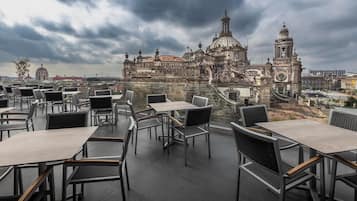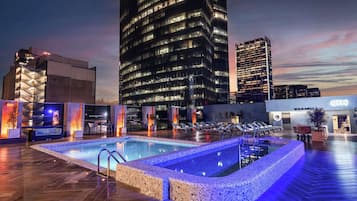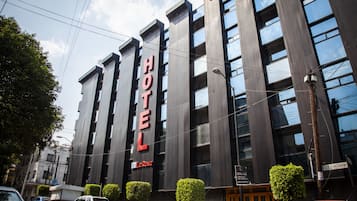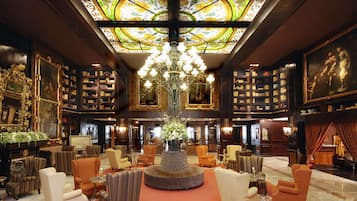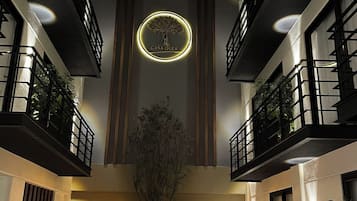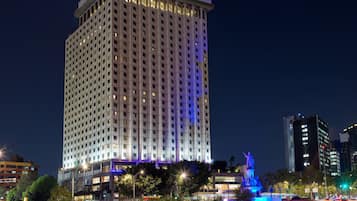Archaeological sites around Mexico City open the door to an ancient world of rich culture and civilisation that rivals any Old World societies. The ruins of the Aztecs and Mayans showcase entire empires with unmatched scientific developments and a rich, advanced culture that existed long before Europeans ever arrived on this continent. As you explore these ruins, you'll see intricate statues, vast buildings, sprawling streets and avenues, and even pyramids that rival those of ancient Egypt.
Mexico City is a hotbed of archaeological research, and many of these sites are surrounded by villages populated by surviving peoples of those ancient cultures. Check out some of the best archaeological sites around Mexico City to tour Mexico's ancient past.
- 1
Cholula Archaeological Zone
See the remains of the largest ancient pyramid

- Budget
- Paare
- Familien
- Geschichte
- Foto
Cholula Archaeological Zone (Zona Arqueológica de Cholula) offers the chance to see part of the largest pyramid of the ancient world, even larger than Egypt's Great Pyramid. This pyramid was in a tiny village, a designated Pueblo Mágico site named Cholula. The pyramid wasn't taller than Egypt's entry, but it was larger in volume, with a gargantuan base. The full pyramid no longer exists but is believed to have been twice the size of those in the ancient Aztec capital of Tenochtitlán.
Today, you can explore portions of the base and visit a museum and a church that dates back to the time of the Spanish Conquistadores. It's about 2 hours southeast of Mexico City.
Lage: C. 14 Pte. S/N, San Miguel, Zona Arqueológica San Andrés Cholula, 72760 San Andrés Cholula, Pue., Mexico
Öffnungszeiten: Tuesday–Saturday from 10 am to 5 pm (closed Sunday–Monday)
Telefon: +52 222 247 9081
Karte - 2
Templo Mayor, Mexico City
Visit a former Aztec temple in the heart of the city

- Budget
- Paare
- Familien
- Geschichte
- Foto
Templo Mayor, Mexico City, is in the heart of the city and offers the chance to see the ruins of a former Aztec stronghold dedicated to 2 ancient gods. The Templo Mayor was once an elaborate temple in the heart of the Aztec capital of Tenochtitlán dedicated to the gods of rain and war. Interestingly, today it stands next door to an impressive 16th-century Roman Catholic cathedral built by the Spanish, possibly to consecrate the site.
Though the original temple here was destroyed by Spanish colonials and its materials were used to build the cathedral, you can tour the ruins and visit a gorgeous museum dedicated to the site. The ruin is right city centre, so it's easy to access.
Lage: Seminario 8, Centro Histórico de la Cdad. de México, Centro, Cuauhtémoc, 06060 Ciudad de México, CDMX, Mexico
Öffnungszeiten: Tuesday–Sunday from 9 am to 5 pm (closed on Mondays)
Telefon: +52 55 4040 5600
Karte - 3
Archaeological Zone Tepozteco
Visit a temple to the god of alcohol

- Budget
- Paare
- Familien
- Geschichte
- Foto
Archaeological Zone Tepozteco (Zona Arqueológica el Tepozteco) is an easy day trip that offers plenty of historic ruins to explore as well as lots of outdoor adventure. The ruins are atop the Tepozteco mountain and are some of the most impressive in the region. The site is a temple to the god of pulque, an Aztec alcohol. The mountaintop views are stunning, and the ruins are well-preserved. The site was once a pilgrimage destination for Aztec peoples who came from as far as modern-day Guatemala.
Here you'll see relief carvings dating to the 15th century and views of the town of Tepoztlán below, with its famed farmers market. It's an hour and a half south of Mexico City.
Lage: Carretera Federal libre, Cuernavaca - Tepoztlan, 62520 Tepoztlán, Mor., Mexico
Telefon: +52 777 314 4048
Karte - 4
Cerro de la Estrella National Park
See a site occupied thousands of years ago
- Budget
- Paare
- Familien
- Geschichte
- Foto
Mehr anzeigenCerro de la Estrella National Park (Parque Nacional Cerro de la Estrella) offers the chance to see caves and petroglyphs along with a small museum. Climbing the hill is a moderately difficult hike that's great for outdoor adventurers. The region is also famous for its annual Passion of the Christ presentation at Easter every year. This was a site of great importance to the ancient Aztecs, who knew it as Huizachtecatl, and it held a vital ritual ceremony known as "New Fire."
Human beings occupied this region as long as 9,000 years ago, and you can see evidence of their occupation here. It's only 36 minutes south of Mexico City.
Lage: Parque Nacional Cerro de la Estrella, 09860 Mexico City, CDMX, Mexico
KarteFoto von Juan Francisco Contreras Fernández (CC BY-SA 3.0) bearbeitet
- 5
Tula Archaeological Zone
See towering Toltec warriors

- Budget
- Paare
- Familien
- Geschichte
- Foto
Tula Archaeological Zone (Zona Arqueológica de Tula, Hidalgo) in the neighbouring state of Hidalgo offers a look at impressively well-preserved Toltec ruins and towering sculptures. The site is mostly known for its basalt statues known as the Atlantes de Tula, which represent ancient Toltec warriors. The site was dedicated to the feathered serpent god Quetzalcoátl, and much of the site revolves around iconography of the deity. You can also visit a central pyramid that formed an important temple for the ancient Mesoamericans who inhabited this site.
These impressive, well-preserved ruins are strikingly beautiful and are among the most important in the region. It's about 2 hours north of Mexico City.
Lage: Tollan, 16 de Enero ( El Tesoro ), El Salitre, 42800 Tula de Allende, Hgo., Mexico
Öffnungszeiten: Tuesday–Sunday from 10 am to 2 pm (closed on Mondays)
Telefon: +52 773 100 3654
Karte - 6
Tlatelolco (Zona Arqueológica de Tlatelolco)
Visit a vital trade hub of ancient Mexico

- Budget
- Paare
- Familien
- Geschichte
- Foto
Tlatelolco (Zona Arqueológica de Tlatelolco) is a vital archaeological region where you can explore 3 different eras of Mexican history from ancient to modern. The ruins at Tlatelolco represent the ancient part of the Plaza de las Tres Culturas and were a vital trade centre of the Aztec world, where today more than 60 structures still stand fully preserved. These include temples, platforms, altars, and others. A museum showcases artefacts from trade, daily activities, and militaria.
Of haunting interest is "the lovers of Tlatelolco," the skeletal remains of 2 people who died embracing each other. You can also follow placards explaining the site and guiding you on the proper order to explore it. It's 10 minutes north of the city.
Lage: Eje Central Lázaro Cárdenas, Tlatelolco, Cuauhtémoc, 06900 Ciudad de México, CDMX, Mexico
Öffnungszeiten: Tuesday–Sunday from 8 am to 6 pm (closed on Mondays)
Telefon: +52 55 5583 0295
Karte - 7
Tenayuca Archaeological Zone
Walk the streets of the City of Serpents

- Budget
- Paare
- Familien
- Geschichte
- Foto
Tenayuca Archaeological Zone (Zona Arqueológica Tenayuca) features an ancient city with a deeply complex history dating to the 13th century. This city was originally founded by the Chichimec people before a century later being conquered by the Aztecs who repurposed it for their needs. It's also the birthplace of the unique Aztec double-pyramid structure, and you can view a surviving (and massive) example with temples dedicated to the gods of rain and war. The pyramid's base has so many detailed serpent carvings that the Spanish named it the City of Serpents. 2 stone staircases lead up to the temples.
The ruins trace the history of several cultures layered atop one another. It's 30 minutes north of Mexico City.
Lage: Quetzalcoatl S/N, San Bartolo Tenayuca, 54150 Tlalnepantla de Baz, Méx., Mexico
Öffnungszeiten: Tuesday–Sunday from 10 am to 5 pm (closed on Mondays)
Telefon: +52 722 215 7080
Karte - 8
Cuicuilco Archaeological Zone
See a 5-level pyramid without leaving the city

- Budget
- Paare
- Familien
- Geschichte
- Foto
Cuicuilco Archaeological Zone (Zona Arqueológica Cuicuilco) offers a look at an important site in Mexico City's Tlalpan region, among the oldest in the area. A standout feature of this site is the 5-level round pyramid that is incredibly well-preserved. These ruins are underrated among local sites, and they don't draw quite as large of crowds as some of the more famous ruins, but they are still of great historic importance. They're well-preserved, and best of all, you don't have to leave the city to get to them.
These are great to explore while still having access to local amenities like shopping and dining. The ruins are about a 40-minute drive south of the centre of city centre Mexico City.
Lage: Av. Insurgentes Sur s/n, Espacio Ecológico Cuicuilco, Tlalpan, 14060 Ciudad de México, CDMX, Mexico
Öffnungszeiten: Saturday–Sunday, Tuesday–Wednesday from 9 am to 5 pm, Thursday–Friday from 10 am to 4 pm (closed on Mondays)
Telefon: +52 55 5606 9758
Karte - 9
Malinalco Archaeological Zone
Visit a site of military and spiritual significance

- Budget
- Paare
- Familien
- Geschichte
- Foto
Malinalco Archaeological Zone (Zona Arqueológica de Malinalco) is also referred to as Cuauhtinchan Archaeological Site and offers the chance to view unique Aztec ruins with monolithic structures. The monoliths here stand out among local ruins and were carved from the nearby Cerro de los Idolos rocky hillsides. The site dates to the 15th century, late in the Aztec empire, and is believed to have been a military and spiritual location. On-site evidence exists of initiation rites into the highest Aztec military ranks. You'll see ancient sculptures of jaguars, eagles, war drums, and other military representations.
The ruins include 6 edifices to explore, one with a famed and imposing serpent-fang entryway. They are 2 hours south of Mexico City.
Lage: Amajac s/n, Barrio Santa Monica, 52440 Malinalco, Méx., Mexico
Öffnungszeiten: Tuesday–Sunday from 10 am to 3 pm (closed on Mondays)
Telefon: +52 714 147 3103
Karte - 10
Site Museum Xochicalco
See an important site for 3 ancient cultures

- Budget
- Paare
- Familien
- Geschichte
- Foto
Site Museum Xochicalco (Zona Arqueológica de Xochicalco) in the state of Morelos contains tonnes of important artefacts and historical significance, possibly of the downfall of the Aztecs. Many scholars theorize that this city played an important role in the fall of Teotihuacán. What makes this site really stand out, though, is that there is evidence of no fewer than 3 different precolonial civilisations living here: the Teotihuacán, the Mayan, and the Matlatzinca cultures.
If you're looking for an archaeological site that lets you experience many different ancient cultures in one place, this one has what you're looking for in its unique architecture and artefacts. It's located just a couple of hours south of Mexico City.
Lage: Carretera Federal Xochicalco, Tetlama S/N, 62609 Miacatlán, Mor., Mexico
Öffnungszeiten: Tuesday–Sunday from 9 am to 3 pm (closed on Mondays)
Telefon: +52 737 374 3090
Karte






